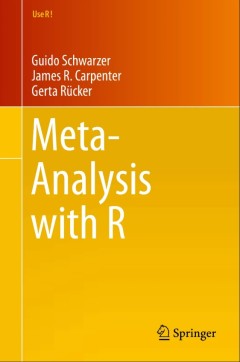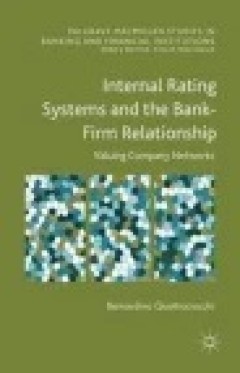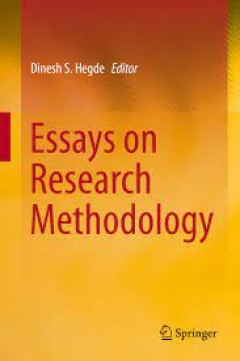Filter by

Digital humanities
A visionary report on the revitalization of the liberal arts tradition in the electronically inflected, design-driven, multimedia language of the twenty-first century.OCLC-licensed vendor bibliographic record.
- Edition
- -
- ISBN/ISSN
- 9780262312103
- Collation
- 1 online resource (x, 141 pages)
- Series Title
- -
- Call Number
- -

Meta-Analysis with R
This book provides a comprehensive introduction to performing meta-analysis using the statistical software R. It is intended for quantitative researchers and students in the medical and social sciences who wish to learn how to perform meta-analysis with R. As such, the book introduces the key concepts and models used in meta-analysis. It also includes chapters on the following advanced topics: …
- Edition
- 1
- ISBN/ISSN
- 978-3-319-21415-3
- Collation
- XII, 252
- Series Title
- Use R!
- Call Number
- -

Connected & disconnected in Viet Nam : remaking social relations in a post-…
Vietnam’s shift to a market-based society has brought about profound realignments in its people’s relations with each other. As the nation continues its retreat from the legacies of war and socialism, significant social rifts have emerged that divide citizens by class, region and ethnicity. By drawing on social connections as a traditional resource, Vietnamese are able to accumulate wealth,…
- Edition
- 1
- ISBN/ISSN
- 9781925022926
- Collation
- -
- Series Title
- -
- Call Number
- 959.7044
Emerging Techniques in Applied Demography
By bringing together top-notch demographers, sociologists, economists, statisticians and public health specialists from Asia, Africa, Europe, and North America to examine a wide variety of public and private issues in applied demography, this book spans a wide range of topics. It evaluates population estimates and projections against actual census counts and suggests further improvement of esti…
- Edition
- 1
- ISBN/ISSN
- 978-94-017-8990-5
- Collation
- 36 b/w illustrations, 54 illustrations in colour
- Series Title
- -
- Call Number
- -
Empirical Research in Statistics Education
This ICME-13 Topical Survey provides a review of recent research into statistics education, with a focus on empirical research published in established educational journals and on the proceedings of important conferences on statistics education. It identifies and addresses six key research topics, namely: teachers’ knowledge; teachers’ role in statistics education; teacher preparation; stud…
- Edition
- -
- ISBN/ISSN
- 978-3-319-38968-4
- Collation
- VII, 37
- Series Title
- -
- Call Number
- -

Internal Rating Systems and the Bank-Firm Relationship: Valuing Company Networks
Summary: “In response to the complexity of the corporate environment and competition, companies are seeking a new organizational set to maintain their competitive advantage. Various empirical studies have been conducted which demonstrate firms’ abilities to increase value through network creation. From a lender’s point of view, a member of a network deserves more attention and a bette…
- Edition
- 1
- ISBN/ISSN
- 978-1-137-49724-6
- Collation
- VII, 119
- Series Title
- Palgrave Macmillan Studies in Banking and Financial Institutions
- Call Number
- -

Writing for Publication Transitions and Tools that Support Scholars’ Success
This book offers systematic instruction and evidence-based guidance to academic authors. It demystifies scholarly writing and helps build both confidence and skill in aspiring and experienced authors. The first part of the book focuses on the author’s role, writing’s risks and rewards, practical strategies for improving writing, and ethical issues. Part Two focuses on the most common writin…
- Edition
- 1
- ISBN/ISSN
- 978-3-319-31650-5
- Collation
- -
- Series Title
- -
- Call Number
- -

Essays on Research Methodology
The book presents a collection of essays addressing a perceived need for persistent and logical thinking, critical reasoning, rigor and relevance on the part of researchers pursuing their doctorates. Accordingly, eminent experts have come together to consider these significant aspects of the research process, which result in different knowledge claims in different fields or subject areas. An at…
- Edition
- 1st Edition
- ISBN/ISSN
- 978-81-322-2214-9
- Collation
- 43 b/w illustrations
- Series Title
- -
- Call Number
- -

Jean-Baptiste Say and the Classical Canon in Economics the British Connecti…
This book explores the perceived paradigmatic conflict within British classical economics between the so called 'Ricardo School' and the contemporary French Economics of Jean-Baptiste Say. Samuel Hollander provides the reader with extensive evidence, utilizing all editions of Say's main texts and his lesser-known writings in order to demonstrate his adherence to much of Ricardian theory. Thi…
- Edition
- -
- ISBN/ISSN
- 9780203022283
- Collation
- -
- Series Title
- -
- Call Number
- -

Envisioning Criminology Researchers onResearch as a Process of Discovery
This book covers research design and methodology from a unique and engaging point of view, based on accounts from influential researchers across the field of Criminology and Criminal Justice. Most books and articles about research in criminology and criminal justice focus on how the research was carried out: the data that were used, the methods that were applied, the results that were achieved…
- Edition
- -
- ISBN/ISSN
- 978-3-319-15868-6
- Collation
- 14 b/w illustrations, 16 illustrations in colour
- Series Title
- -
- Call Number
- -
 Computer Science, Information & General Works
Computer Science, Information & General Works  Philosophy & Psychology
Philosophy & Psychology  Religion
Religion  Social Sciences
Social Sciences  Language
Language  Pure Science
Pure Science  Applied Sciences
Applied Sciences  Art & Recreation
Art & Recreation  Literature
Literature  History & Geography
History & Geography